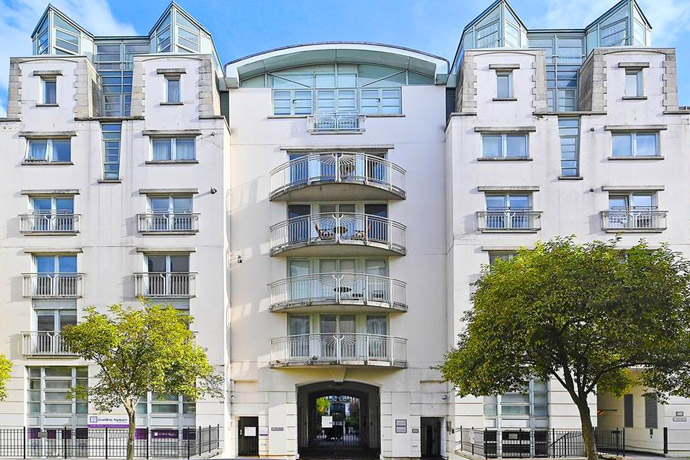
23/02/26
Modernisation project gives prestige residence a lift
020 3637 7968
info@mihproperty.co.uk020 3637 7968

The Act finally received Royal Assent on 27 October 2025 bringing the many proposed – and quite stringent – changes into effect. Whilst the Bill is officially law, it still requires secondary legislation before it can be put into practice. The government has not yet announced a single, specific, start date for all the new measures. Most major changes, such as the ban on Section 21 evictions, are not expected to be implemented until mid-2026.
FACT: There are 11 million private renters and 2.3 million landlords in England
Long anticipated and the talk of every Landlord and property portfolio owner, standout points in The Bill in a nutshell are:
Abolition of Section 21 Evictions – Landlords can no longer demand ‘no-fault’ evictions and must abide by new legitimate grounds for possession rules,(Section 8 – i, selling the property, ii, serious rent arrears, iii, anti-social behaviour.)
Introduction of Periodic Tenancies – From the date of implementation, all existing and new tenancies will become open-ended Assured Periodic Tenancies (APT). These are intended to give tenants greater security i.e. you cannot be evicted unless the Landlord has legitimate reason to do so as per Section 8 above*. Meanwhile tenants must give two-month’s notice to quit.
Decent Homes Standard – Previously only applicable to social housing, this will now be extended to include the Private Rented Sector. Properties must meet specific health and safety standards and be damp and mould free with in a given timeframe – as per Awaab’s Law.
Landlord and Ombudsman Database – A new PRS Landlord Ombudsman register will become mandatory for all landlords who must self-register. It will provide impartial and binding resolution for tenant’s complaints about landlords
*There are some provisos to this, so it is wise for Landlords to read and digest the Bill.
> SEE THE FULL GUIDE TO THE RENTER’S RIGHTS ACT 2025
The new Bill makes it a statutory right for tenant to request to keep a pet, ending the previous blanket ‘no pets’ restriction.
As a nation of pet lovers this would seem like a reasonable point. More people are choosing to live in rented accommodation for longer due to the high cost of home ownership. Pets are frequently deemed a member of the family, so pet bans can hinder those in need of a pet-friendly rental property who find that options are severely limited. Furthermore, elderly folk can find themselves in rental accommodation as they downsize/release equity, many of whom have pets who are valuable companions that contribute to wellbeing.
FACT: only around 9% of rental properties across England are listed as pet friendly
So where are the boundaries?
Under the new legislation, Tenants must seek prior written consent (including a specific description of the pet) from the Landlord, who cannot unreasonably refuse. Landlords must respond to a written request within 28 days, and provide a reasonable written justification for any refusal, with exceptions for unsuitable properties or allergies, etc.
Many landlords worry that pets will cause damage to the property, leave lasting odours and potentially be a nuisance to other tenants. At the outset of the Bill the plan had been to insist that pet owners provide insurance to cover pet damage; however, this was more recently removed.
Further investigation suggests that pet damage is, on the whole minimal, however there are documented cases where an unwieldy animal has caused extensive damage. It seems only fair that certain reasonable conditions are met, for example, the animal(s) in question must not be listed under the Dangerous Wild Animals Act or Dangerous Dogs Act.
Reasonable grounds for refusal
Landlords can still refuse, but the refusal must be on what are deemed ‘reasonable grounds’.
For example:
> YOU CAN SEE THE NEW RENTING WITH PETS DEFINITION HERE
Landlords are advised to explore and understand the legal position before making a refusal and be prepared to be challenged. Perhaps the answer lies in providing fixtures and fittings that are wipe clean and pet-friendly – laminate flooring, washable curtains and so on. The new legislation assumes that the standard tenancy deposit (capped at five or six weeks’ rent) is sufficient to cover any damages.
Many feel that the Bill falls squarely on the side of the tenant and doesn’t consider some of the problems faced by landlords, especially those with smaller portfolios of 1 – 3 properties. Additional rules include:
Rent in Advance Limit – Landlords can only request a maximum of one month’s rent in advance once a tenancy is signed.
Bidding War Ban – Landlords and agents will be prohibited from encouraging or accepting rental bids above the advertised price.
Discrimination Ban: – It will be illegal for landlords to have blanket bans on renting to people receiving benefits or those with children.
… and long feared, the Bill is predicted to a have a major impact on the Private Rental Sector. It remains to be seen, but some suggest that this will not be the end of the proposed reform changes, whilst others are lobbying for landlords’ rights and consideration for those rental property owners already struggling in a difficult market.
We’ll keep you posted on developments.